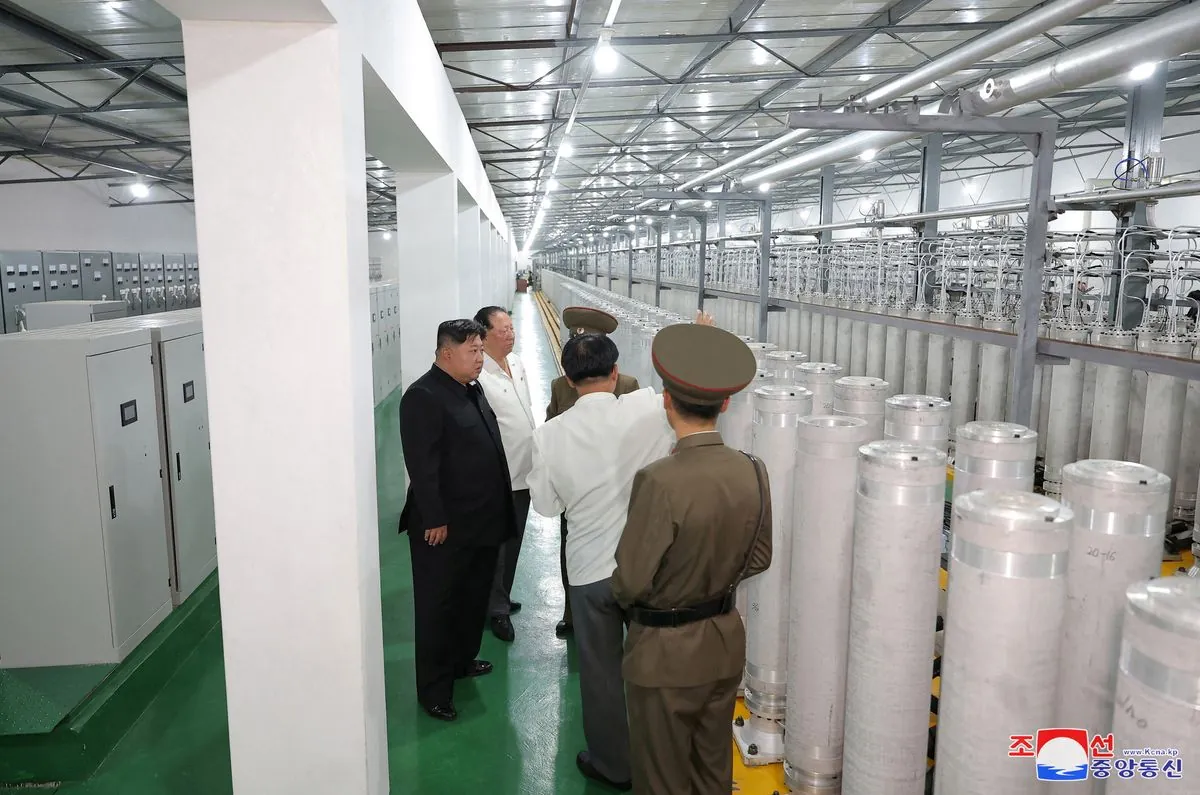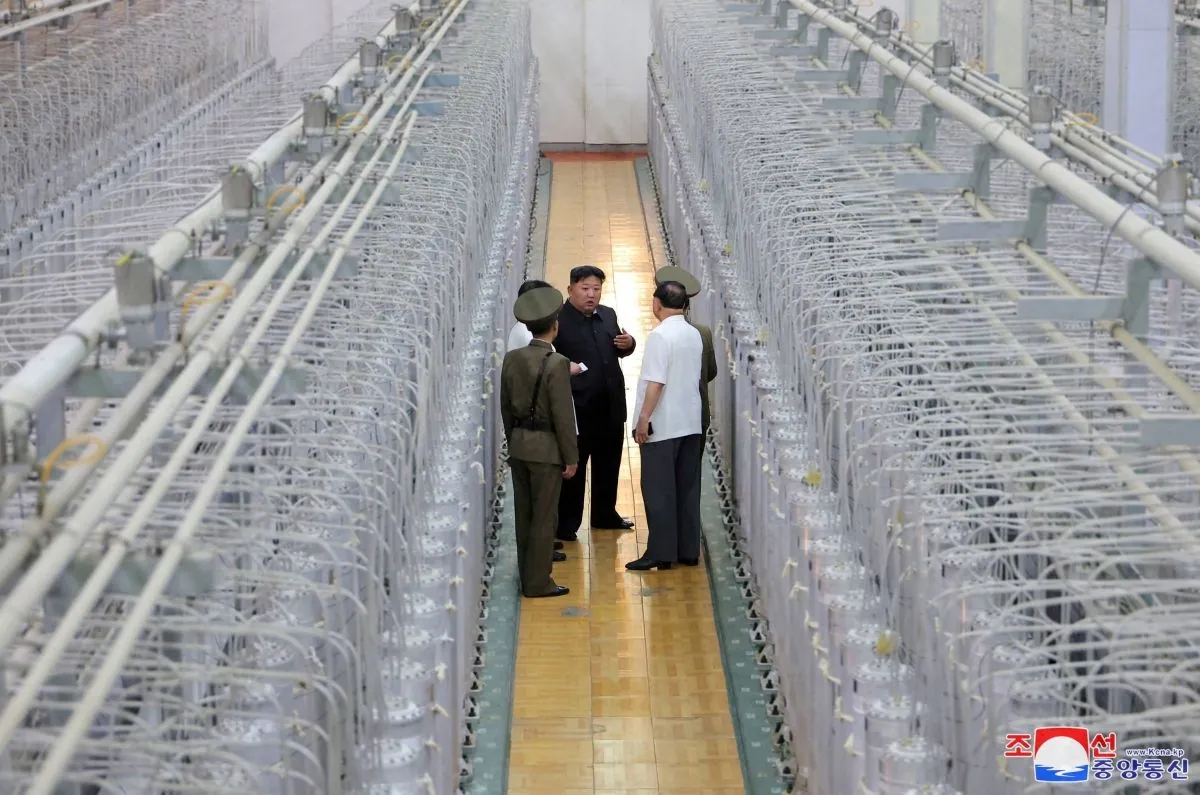North Korea Unveils Secret Uranium Facility, Vows Nuclear Expansion
North Korea reveals images of a covert uranium enrichment facility, with Kim Jong Un calling for exponential growth in nuclear weapons. South Korea condemns the move, emphasizing international opposition.

North Korea has taken an unprecedented step by releasing photographs of a clandestine uranium enrichment facility, marking a significant escalation in its nuclear ambitions. Kim Jong Un, the country's leader, used this revelation to underscore his commitment to expanding North Korea's nuclear arsenal.
The images, disseminated by the state-run Korean Central News Agency, depict Kim Jong Un surrounded by extensive rows of centrifuges. These machines are crucial in the production of enriched uranium, a key component in nuclear weapons. The agency did not disclose the facility's location or the date of Kim's visit.
During his inspection, Kim emphasized the necessity to "exponentially increase the number of self-defense nuclear weapons" and highlighted the importance of augmenting the country's centrifuge capacity. He also announced that a new, advanced centrifuge design is nearing completion, which is expected to bolster North Korea's production of weapons-grade nuclear materials.

This revelation marks the first time North Korea has publicly displayed a nuclear facility since 2010, when it allowed American scholars to view a uranium enrichment site in Yongbyon. The current facility's location remains undisclosed, leaving experts to speculate whether it is the same Yongbyon site or a different location altogether.
South Korea's Unification Ministry swiftly condemned Pyongyang's statements, asserting that such nuclear development clearly violates United Nations Security Council resolutions. The ministry stated, "North Korea must realize that we and the international community will never condone North Korea's possession of nuclear weapons in any circumstance."
"Any nuclear threat or provocation by North Korea will be met with an overwhelming and strong response from our government and military, based on the solid extended deterrence of the South Korea-U. S. alliance."
The tension in the region has been further heightened by North Korea's recent missile tests. On September 8, 2024, South Korea's Joint Chiefs of Staff reported detecting multiple short-range ballistic missiles fired towards the sea, underscoring the ongoing military provocations by the North.
North Korea's nuclear program has a long and contentious history. The country withdrew from the Nuclear Non-Proliferation Treaty in 2003 and conducted its first nuclear test in 2006. Since then, it has carried out five more tests, with the most powerful occurring in 2017. These actions have led to multiple rounds of sanctions imposed by the United Nations Security Council and the United States.
Recent estimates from the Federation of American Scientists suggest that North Korea may have produced enough material to construct up to 90 nuclear warheads and potentially assembled about 50. This represents a significant increase from previous assessments, highlighting the rapid advancement of North Korea's nuclear capabilities.
The international community continues to grapple with the challenge of North Korea's nuclear ambitions. The Six-Party Talks, aimed at denuclearizing North Korea, were held from 2003 to 2009 but failed to achieve lasting results. The International Atomic Energy Agency (IAEA) has been unable to fully monitor North Korea's nuclear activities since 2009, further complicating efforts to assess and contain the country's nuclear program.
As tensions persist, the world watches closely, hoping for a diplomatic resolution to this ongoing nuclear crisis on the Korean Peninsula.


































